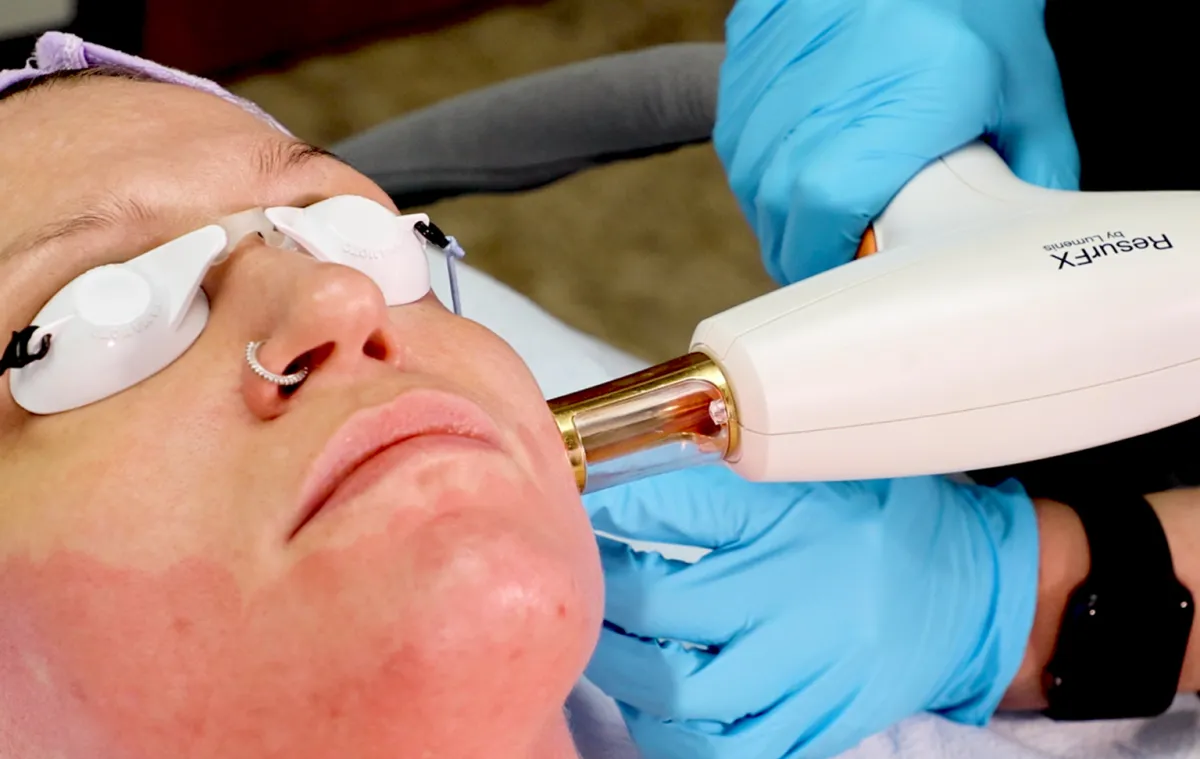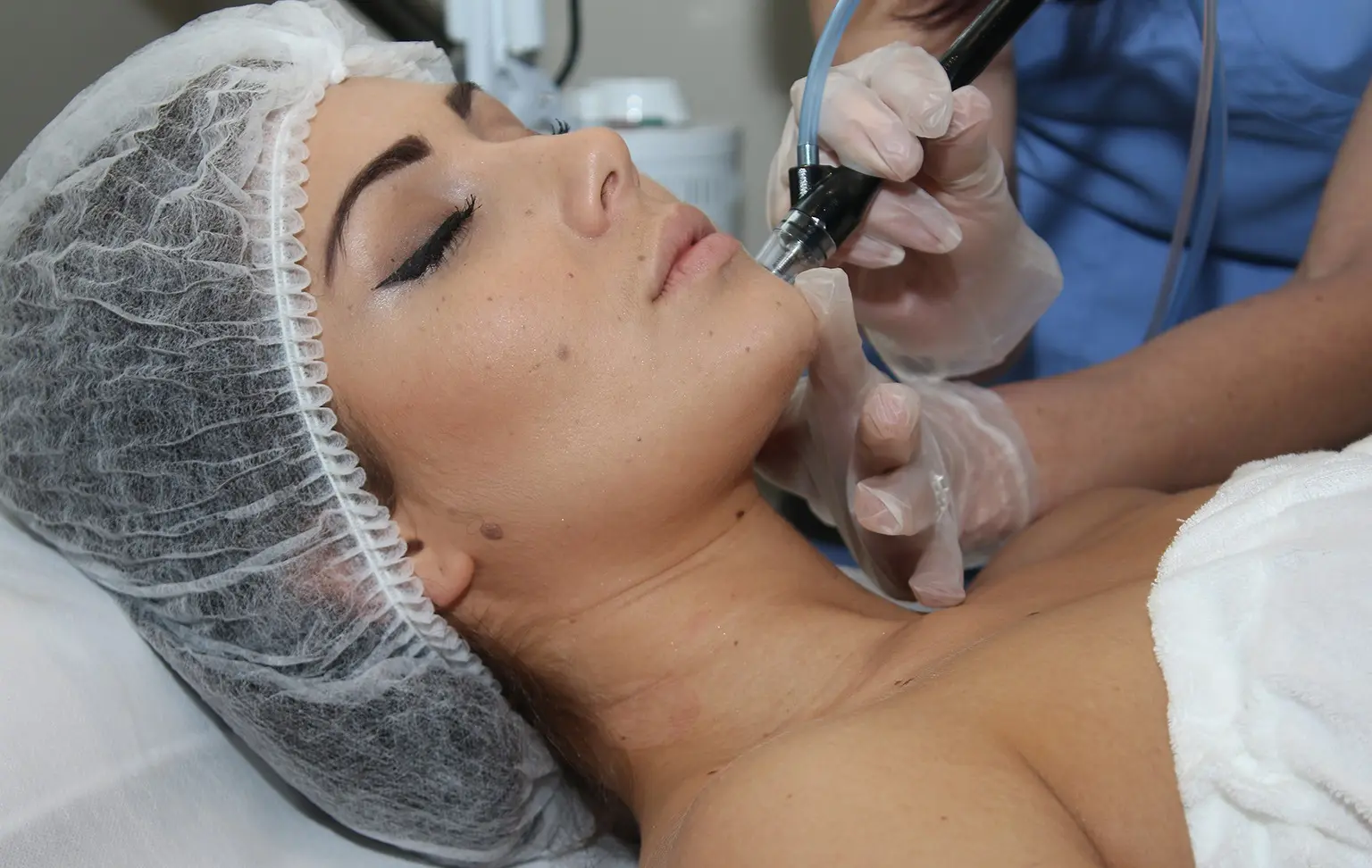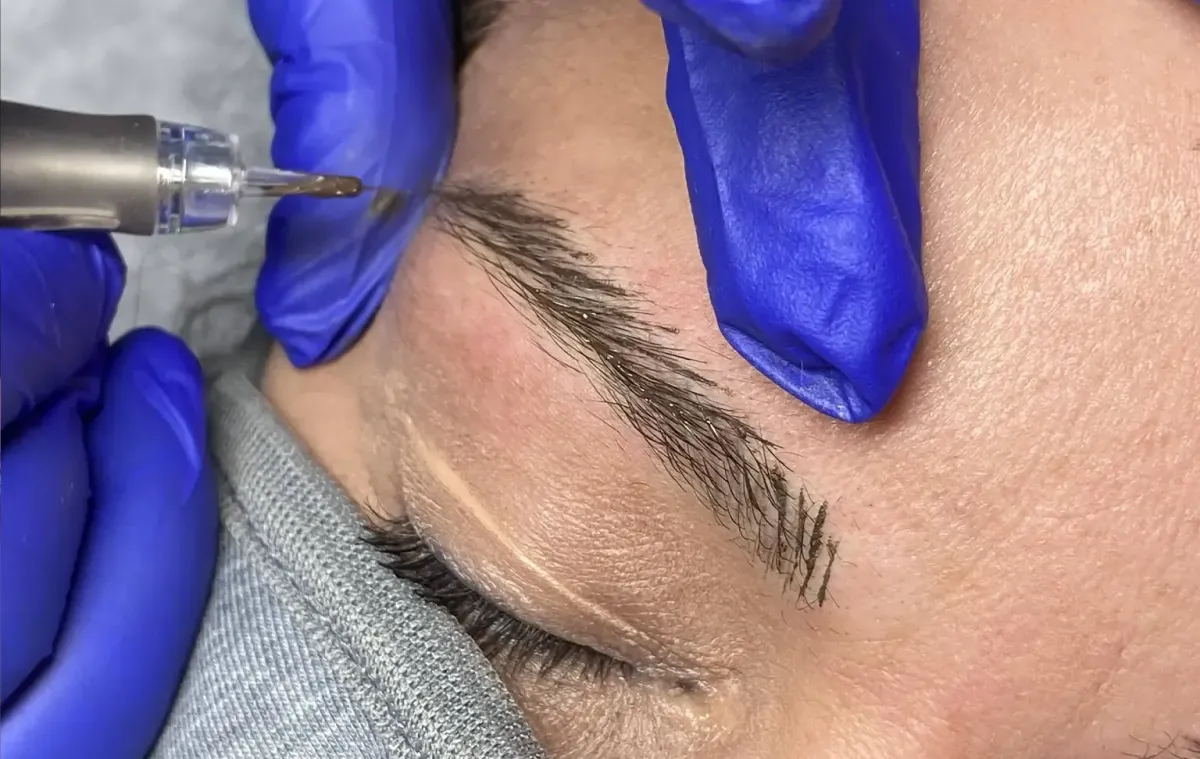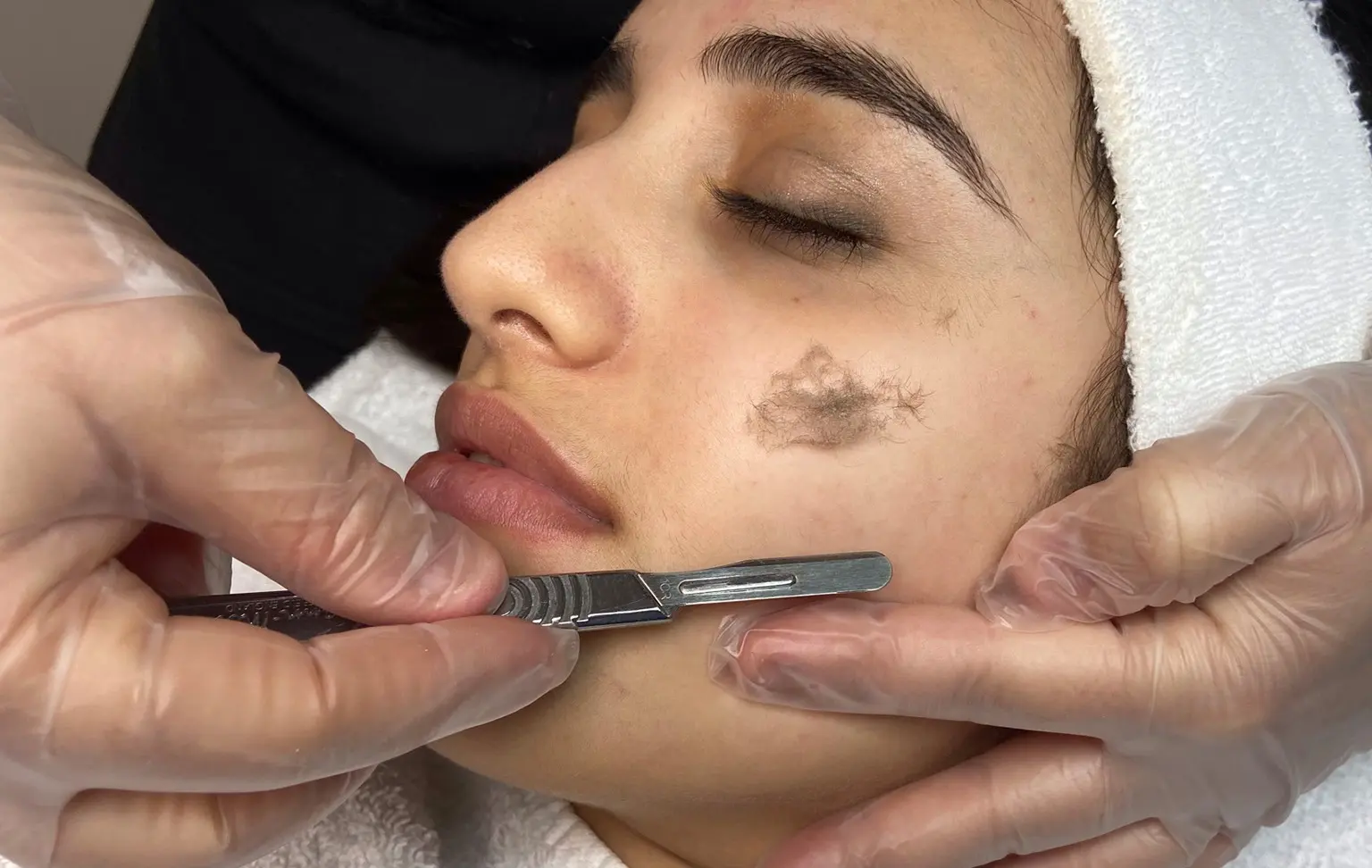Hyperpigmentation Treatment In Houston TX
REMOVE HYPERPIGMENTATION
Restore Even, Radiant Skin
At Beauti4Skin Medspa in Houston, we know that hyperpigmentation — including dark spots, melasma, and uneven skin tone — can affect your confidence. Our advanced treatments target discoloration, promote a uniform complexion, and rejuvenate your skin.

At Beauti4Skin Medspa we strive for excellence, not perfection.

What Causes Hyperpigmentation?
Hyperpigmentation occurs when your skin produces an excess amount of melanin, a darker skin pigment, in concentrated areas. There are a number of factors that can trigger this melanin production. The most common are sun exposure, hormones, and injury to the skin. However, less common causes such as chemotherapy and Addison’s disease can also lead to hyperpigmentation. Some people may be more genetically predisposed to skin darkening than others.
Our Hyperpigmentation Treatments
We offer professional, personalized treatments to address hyperpigmentation
Laser Therapy – Effectively targets pigmented cells to reduce dark spots and melasma.
Chemical Peels – Exfoliate dead skin, lighten pigmentation, and promote even skin tone.
Customized Enzyme Facials – Nourish and brighten the skin for a healthy, glowing look.
Medical-Grade Skincare Products – Support long-term results and prevent future pigmentation.
Treatments To Remove Hyperpigmentation In Houston
Hyperpigmentation is not dangerous and is usually not a sign of more serious underlying conditions. If you develop a form of hyperpigmentation, you shouldn’t worry. However, if you want to get rid of hyperpigmentation, there are a number of treatment options available to you.

How Our Treatments Work
Laser Therapy: Delivers targeted energy to break down excess melanin and lighten dark spots.
Chemical Peels: Remove damaged outer layers to reveal brighter, more even-toned skin.
Microneedling (SkinPen): Stimulates collagen production to improve texture and skin tone.
Customized Enzyme Facials: Deeply cleanse and nourish skin while reducing hyperpigmentation.
Types of hyperpigmentation
Hyperpigmentation is a category that includes a few different kinds of skin darkening. The causes and symptoms of each are slightly different.
Age spots (sun spots, liver spots, solar lentigines): these are a common skin condition as you age. They develop from sun exposure over time and, unlike freckles, do not fade as sunny weather disappears. They appear as large brown or tan spots on areas that get lots of sun exposure, such as the face and hands.
Melasma: melasma appears as a group of freckles or darker patches, usually on the face. Unlike age spots and freckles, these are not triggered by the sun, but by hormonal changes. Melasma typically occurs during pregnancy or while taking birth control pills, and it is most common in women of color.
Post-inflammatory hyperpigmentation: this is skin darkening that occurs after any trauma or inflammation of your skin. It can develop as a result of acne, burns, cuts, or lupus anywhere on the body. If you notice dark patch in the same area as a previous skin condition that doesn’t fade within a couple of weeks, it may be post-inflammatory hyperpigmentation.
How to prevent hyperpigmentation
If you are concerned about hyperpigmentation, or if you have already experienced it and are trying to prevent another flare-up, there are some steps you can take to prevent hyperpigmentation from occurring.
Wear sunscreen: because hyperpigmentation is very often linked to sun exposure, the best think you can do is to wear sunscreen every day. Look for a sunscreen with an SPF of at least 30, and make sure you’re wearing it on both your face and your body when you’ll be outdoors.
Protect your skin: you can also protect your skin from excess sun exposure by wearing hats and long-sleeved clothing when you know you will be in the sun.
Avoid triggering medications: some people develop hyperpigmentation, particularly melasma, linked to hormonal changes that result from taking birth control pills. If this happens to you, you can consider switching to a different method of birth control.
Services
Other Treatments

ResurFX
Non-invasive laser for smoother, revitalized skin.

DiamondGlow
Exfoliate and infuse your skin for a radiant glow.

Microblading
Semi-permanent tattoo for natural, defined eyebrows.

Sunspot Removal
Professional treatment to fade sunspots and even skin tone.
What Our Clients Are Saying

Nina Isabel
⭐⭐⭐⭐⭐
I found this amazing spa a few years ago and can’t say enough good things. The staff is wonderful, and Ray is exceptional—always making me feel like family with personalized, informative care. The spa is pristine, and Ray’s knowledge of treatments, equipment, and products builds total confidence. Highly recommend—this place is truly one of a kind!

Elizabeth Izaguirre
⭐⭐⭐⭐⭐
This place by far is one of the best one I've been to for my facial spa and tattoo removal. Lets start with the tattoo removal. no pain and i might need maybe 3 more sessions. extremely professional. The do not try to sell you products you do not need or procedures. They are honest and trust worthy.

Lina Almasri
⭐⭐⭐⭐⭐
The best med spy you can ever go to They are super professional super friendly and results are amazing. They do their best to serve you and give you the best results. I just recently found this place and I had a few session of laser and it’s amazingly showing results not like any other place I’ve been to I appreciate all the help and keep up the good work.
FREE LASER HAIR REMOVAL SESSION
Buy 5 sessions, get the
6th FREE

Flex Payment
Aesthetic services such as laser hair removal, body contouring, and other invasive and non-invasive medspa treatments in Houston can be costly. At Beauti4Skin Medspa we have interduce Flex Payment, which are a few payment options and programs to make treatments for patients more convenient and affordable than ever before. Flex Payment has helped hundreds of our patients to reach their aesthetic goals, without worry about the treatment cost.
Contact Us Today For
Hyperpigmentation Treatment in Houston
Take the first step toward even, radiant skin. Contact Beauti4Skin Medspa in Houston to schedule your free consultation. Our team will recommend the best treatments for hyperpigmentation tailored to your skin.













